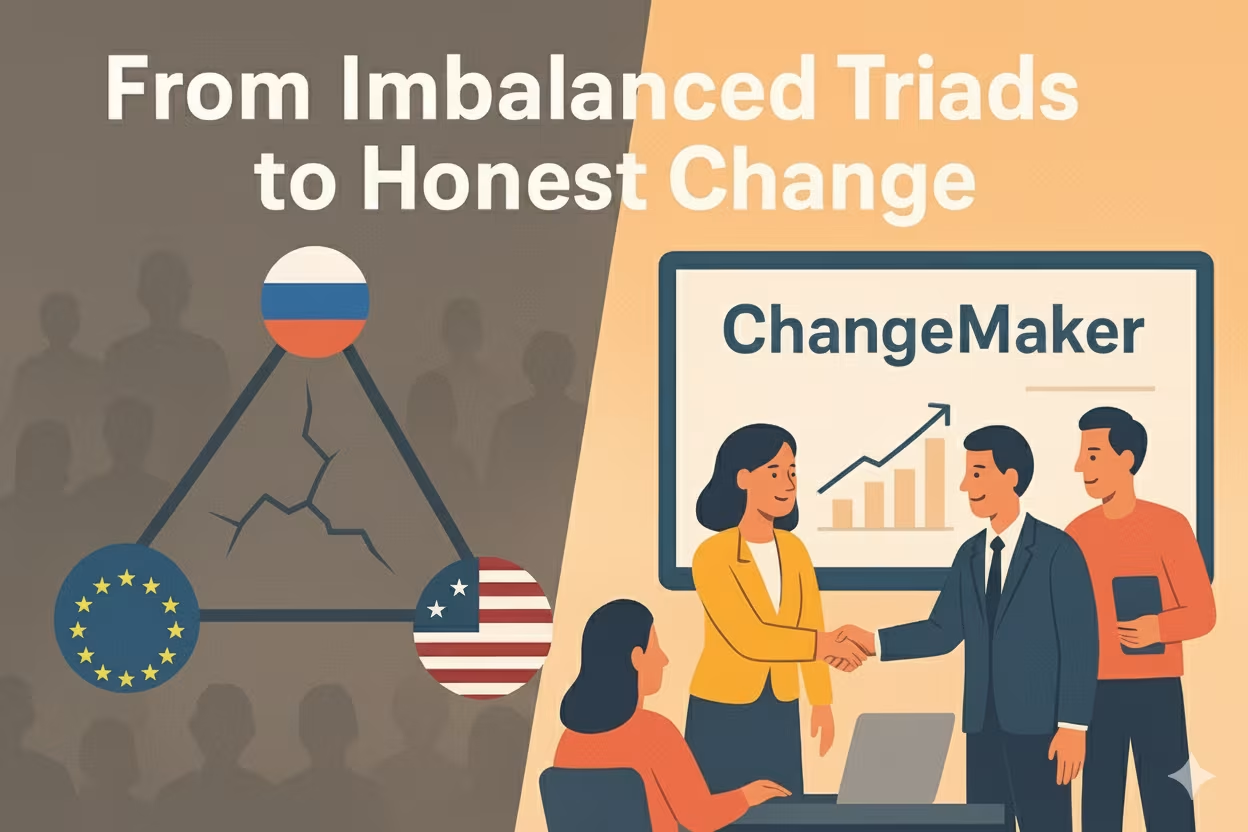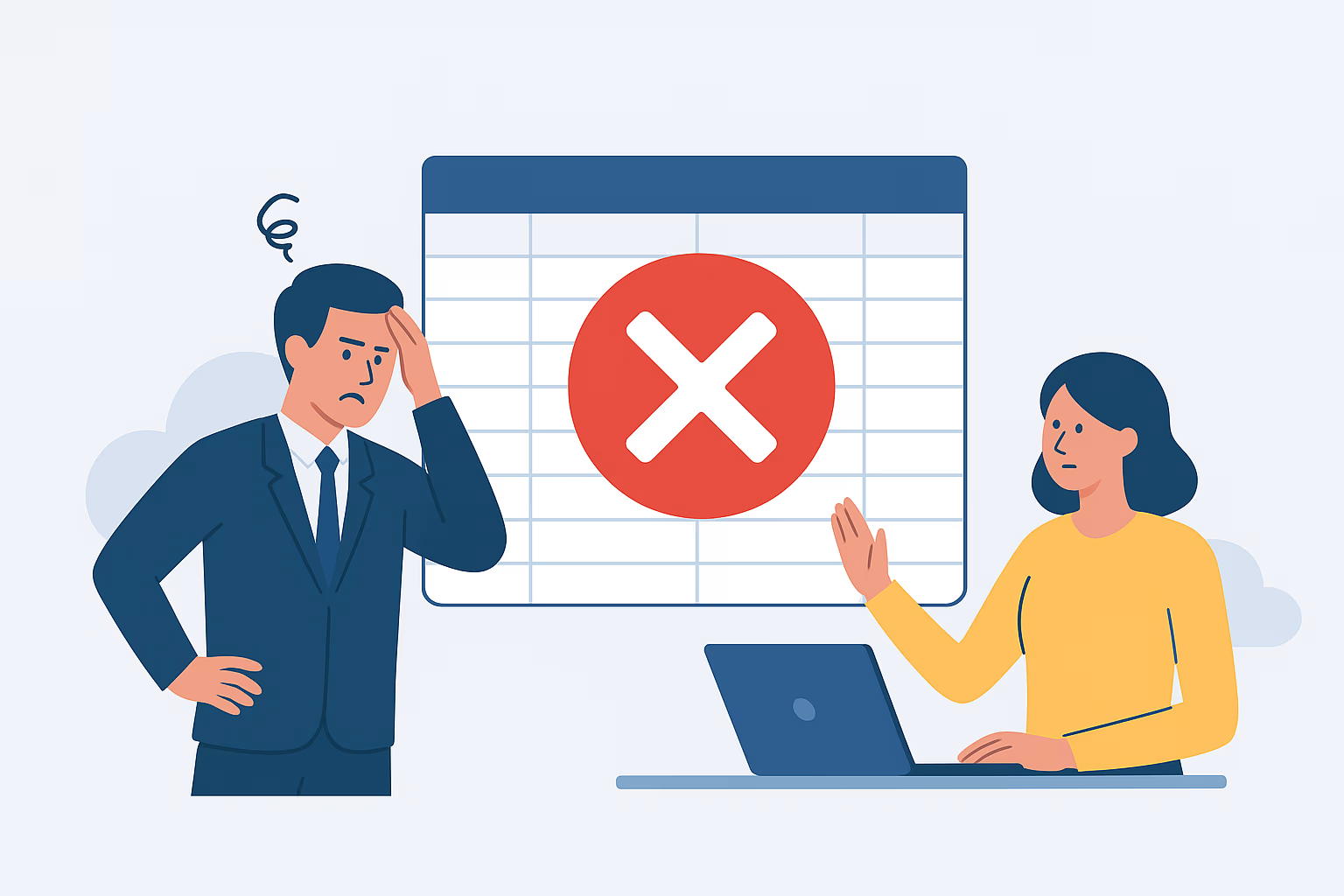Table of Contents
Remember March 2025 when the EU decided to “ReArm Europe” for 800bn €? How did this sweeping change in EU attitude come about?
The Imbalanced Triad: A Force for Change
The US president had sided with the Russian ruler. Now, how do you feel about someone siding with your enemy? Cannot be your friend. Must be your enemy. In a relationship triangle, it is hard to maintain a positive attitude to someone who thinks positive about something you consider negative. Fritz Heider, famous social psychologist, called this an imbalanced triad – you must do something to rebalance it.
5 Cognitive Strategies to Maintain the Status Quo
What can you do? Leon Festinger’s 1957 classic work found typical cognitive strategies, for example:
- You can plead guilty yourself, so you can see the others in a positive light (“US overpaid for our security”, “NATO expansion provoked Russia”)
- You can deprioritize the whole topic (“Money is better spent on our pension system”)
- You can play down your relationships (“Being, or not being, US’s friend or Russia’s enemy makes no difference – nothing will happen”)
- You can question your need for action (“The US president will not last long”)
- You can create even bigger friends or enemies (“The real threat is China”)
When the Balance Finally Breaks
Suddenly, in the last few weeks, people waved goodbye to all of these strategies. The evidence against them became too overwhelming. Only one last strategy was left to balance the triad: The US, with its current leadership, is not Europe’s friend anymore.
Honesty: The Key to Transformation
“Making yourself honest” was key here, and is key when kicking off any kind of transformation. Imbalanced triads are all over the place in restructuring or other corporate programs. And transformation platforms like ChangeMaker help you get the honest facts on the table.
To continue the conversation on organizational culture and leadership, follow Principia Mentis on LinkedIn.



